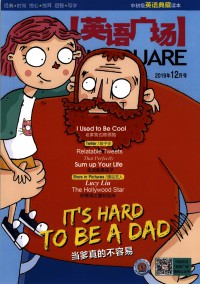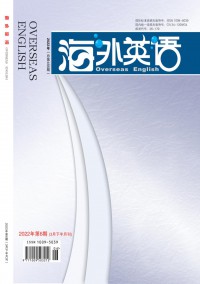英語典故習語翻譯
前言:本站為你精心整理了英語典故習語翻譯范文,希望能為你的創作提供參考價值,我們的客服老師可以幫助你提供個性化的參考范文,歡迎咨詢。

[Abstract]Idiomsarefixedphrasesthatgothroughthetestofhistoryandcannotbetreatedseparately.Inordertobeloyaltotheoriginaltext,thetranslationofEnglishidiomsshouldnotonlykeeptheoriginaltasteofthesource,butalsomeetthestandardsofwriting,especiallyformythologyandallusion.BecauseEnglishidiomshavemanifestedandabsorbedthedifferentnationalcultureofancientGreek,ancientRome,andNorthernEurope,itismoretypicalandrepresentativethanotherformsoflanguageonreflectingtheculturaldiversity.Domesticationandforeignizationaretwomainmethodsoftranslation.Andtherearesomeconcretetranslationskillsasfollows:1.Literaltranslation2.Freetranslation3.Borrowing4.Literaltranslationwithannotation.Inthetrendofculturalglobalization,cultureamongvariousnationalitiespermeateandsticktogethermutually.Andthereaders’abilitytoacceptthenewculturalimageryhasimproveddaybyday.Thereforesolongasnottoaffecttheunderstandingofsourcelanguage,theauthoradvocatestranslatingEnglishidiomsdirectlyasfaraspossibletocarryontheculture,whichpromotestheexchangeandfusionofcultureallovertheworld.
[KeyWords]idioms;allusion;translationmethods
【摘要】習語是指那些經受了歷史的長期考驗,千錘百煉而形成的固定詞組。為了忠于原文,習語翻譯既要保持源語的原汁原味,也要符合譯入語語言文字的需求。尤其在翻譯習語中的神話典故時更應注意以下三點1.譯入語結構的平衡2.譯出源語的民族特色和地域色彩3.盡可能保留源語的形象。因為英語習語吸收了眾多來自古希臘,古羅馬,北歐古代神話等歐洲各民族的文化精髓,所以在體現語言的文化差異方面,習語比其他語言成分更具有典型性和代表性。基本的英語翻譯方法有歸化和異化,具體體現如下:直譯法,意譯法,借用法,直譯加注。在當前文化全球化的時代背景下,各民族間的文化相互滲透和融合的趨勢愈來愈強。人們對于外來文化、異國情調的包容、接納以至欣賞能力也日漸提高。因此,作者認為只要在不影響譯語讀者理解的前提下,應提倡盡量以文化直入模式進行習語翻譯,以促進世界文化的交流與融合。
【關鍵詞】習語;神話典故;翻譯方法
1.Introduction
WhenopeningOxfordAdvancedLearner’sDictionaryofCurrentEnglish,onecanseesuchanentry:“Idiom(n.)Phraseorsentencewhosemeaningisnotclearfromthemeaningofitsindividualwordsandwhichmustbelearntasawholeunit.”[1]AndEnglishtranslationtheoreticianPeterNewmarkalsosaid:“Anidiomisacurrentandfrequentlyusedgroupofwordswhosemeaningisnotclearfromthecommonmeaningsofitsconstituentwords”.[2]Inbrief,idiomsarefixedphrasesthatgothroughthetestofhistoryandcannotbeseparated.Sothewholemeaningusuallycannotbesurmisedintranslationandthecomponentsmustnotbeseparatedatone’sease.
2.Background
Englishasaninternationallanguage,itsusageiswide-ranging.ManycountrieschooseEnglishastheirofficiallanguage.Whatismore,sixtypercentofbroadcastingintheworlduseEnglishtopropagatetheirinformation.Ofcourse,therearemanyidiomsinEnglishandpartsofthemareloanwords.ThefeaturesofassimilatingloanwordsinEnglishareevident.Ontheonehand,itbelongstoGermaniclanguagefamilythatenablesittotakepossessionofthecommonwordsinGermaniclanguage.Ontheotherhand,EnglishkeepsintouchwithFrenchandRomanlanguagefamilycloselyforalongtime.TheancientGreekmythologies,RomanmythsandfairytalesofnorthernEuropearethepubliclyownedwealthofEuropeannations.TheyhavedeepinfluenceondevelopmentofwholeEuropeancultureinwhichmanystoriesprovidesourcematerialsforEnglishidioms.Therefore,EnglishidiomstakeinanywordthatcanrepresentthemainEuropeanculture.Anditismoretypicalandrepresentativethanothersinreflectingtheculturaldiversity.JustlikeBaconsaid:Talent,quick-wittedandspiritinanationcanallbefoundinitsidioms.[3]
2.1ThesourcesofEnglishidioms
Aseveryoneknows,idiomscomefromdifferentaspects:differentlivingenvironments;everydaylife;religion;historicalevents;literaryworksandmythologyandallusion.
2.1.1Idiomsfromdifferentlivingenvironments
Idiomsarecloselyrelatedtopeople’slaborandlife,becausepeopleinaparticularcultureneedwordstonameandexplainobjectsandappearancepresentinthatculture.TheHanPeople,liveonland,andbelongtoanagrariansocietythatplacesagriculturalproductionatthetopofthenationalagenda.Duringthelonghistoryoffarming,theChineselanguagehasaccumulatedlargenumbersoffarmers’idiomslike瑞雪兆豐年(atimesnowpromisesagoodharvest),五谷豐登(abundantharvestofallfoodcrops).WhileBritishliveinanislandcountry,probablyhaveidiomsaboutwaterandsailing.Forexample,wespeak揮金如土inChinese,butweshouldrenderitintoEnglishas“spendmoneylikewater”.Andtherearesimilarexamplesasfollows:“tokeepone’sheadaboutwater”(奮力圖存),“infullsail”(全力以赴),“towerone’ssail”(甘拜下風).
Whatismore,therecomedifferentspecialproductsdeterminedbythedifferentgeographicalsurroundings.Forexample,“likemushrooms”and“springuplikemushrooms”inEnglish,means像蘑菇一樣,and雨后春筍般地涌現inChinese.Bothofthemhavethesamemeaningofthegreatdevelopmentofathing,buttheyusetheirrespectivethingstoformthemetaphor,becauseChinaaboundswithbamboo,whereasitdoesnotgrowinEngland.SotheChinesepeoplearequitefamiliarwithbamboo;whiletheEnglishdon’t.Thiscaseisquitethesamewiththeidiom“plentiful
asblackberries”,forblackberriesareeasilyavailableinEnglandwhileinChinese,多如牛毛isused,forcattlecanbefoundeverywhereinChina.
2.1.2Idiomsfromeverydaylife
Entertainmentandactivities,whicharepartsofnationalculture,arequitedifferentinvariouscountries.Horseracing,boxingandcricketareancientandtraditionalsportsinEngland,soinEnglish,thereareidiomslike“neckandneck”(不分上下),“downandout”(倒下出局),“notcricket”(不講信用),and“straightfromtheshoulder”(直截了當),and“haveagoodinnings”(一帆風順);whereastheancientChinesepreferredhuntingandchess:棋逢對手(diamondcutdiamond),劍拔弩張(atdaggersdrawn),明槍易躲,暗箭難防(Falsefriendsareworsethanopenenemies).Therearesomeaspectsineverydaylifeinthefollowing.
(ⅰ)Idiomsfromfood
InEngland,breadisusuallyeatentogetherwithbutter,andsalt,milkandcreamaretheireverydaydiet.Allofthemaretheeverydaydietforwesternpeopleandthusappear“Thereisnousecryingoverspiltmilk”(不要做無謂的后悔),“baker’sdozen”(面包師的第十三個面包),and“polishtheapple”(拍馬屁);ChinahasalonghistoryofcookingandtheChineseareknownasthemostcritical,forwhoattachgreaterimportancetofoodthananyotherpeople,asisreflectedinthesayinglike:畫餅充饑(todrawcakestoallayhunger)
(ⅱ)Idiomsfromsea
BothintheChineseandtheEnglishlanguages,idiomsabouttheseaarenumerous,becausebothofthesetwocountriesaresurroundedandhalf-surroundedbysea,andtheyarerichinnaturalresourcesoffish.Fishingplaysavitalroleintheireconomy,soalargenumberofidiomsconcerningfisharehandeddown:“Fishbeginstostinkatthehead”(上梁不正下梁歪),“Neveroffertoteachfishtoswim”(不要班門弄斧),and“tofishintroubledwater”(渾水摸魚).
(ⅲ)Idiomsfrommilitaryaffairs
Thehistoryofmankindisalmostthehistoryofwar,whichisthesourceofnumerousidioms.TheChinesenationhasalonghistoryofwarformorethantwothousandyears,andthereforetheChineselanguageisrichinsuchidioms:項莊舞劍,意在沛公(XiangZhuangperformedthesworddanceasacoverforhisattemptonLiuBang’slife.---actwithahiddenmotive);四面楚歌(beindesperatestraits);暗度陳倉(tostealamarchon).AnditisalsomirroredinthefollowingEnglishidioms:“WhatmillionsdiedthatCaesarmightbegreat”(一將功成萬骨枯);“Meetone’sWaterloo”(遭遇慘敗);“Pyrrhicvictory”(得不償失的勝利);andgentleman’sagreement(君子協定).
2.1.3Idiomsfromreligion
parativelyspeaking,BuddhismhasgreaterinfluenceinChineseculturealthoughChinaisamulti-religiouscountry.ItwasfirstintroducedintoChinainthefirstcenturyAD,andhasshapedtheChineselanguage,diet,arts,etc.,andgreatlystimulatedthedevelopmentofChineseliterature.ThelargenumberofwordsandidiomsderivedfromBuddhismisoneofthemanifestationsofitsinfluence,suchas放下屠刀,立地成佛(AbutcherbecomesaBuddhathemomenthedropshiscleaver---awrongdoerachievessalvationassoonashegivesupevil)and做一天和尚,撞一天鐘(takeapassiveattitudetowardone’swork).AndtherearequiteafewEnglishidiomsfromreligion.Suchas:Benjamin’smess(最大的份額);
raiseCain(大吵大鬧);appleofSodom(金玉其外,敗絮其中);soptoCerberus(賄賂);handwritingonthewall(不祥之兆)andsoon.
2.1.4Idiomsfromhistoricalevents
Inmostlanguage,peopleembellishtheirspeechorwritingwithreferencestocharactersoreventsfromtheirhistory,thatistosay,idiomaticexpressionsarecloselyrelatedtoacountry’shistory.TherearealotofidiomsintheChineselanguagecannotfindanequivalentintheEnglishlanguagebecausethehistoryofthetwocountriesarequitedifferent.Manyidiomsarefromtheirownhistory.TheEnglishlanguagehasmuchlessidiomsfromhistoricaleventsthantheChineselanguagebecauseEnglishjusthasahistoryofmorethanonethousandyearsduringwhichlessimportanthistoricaleventshappened.Forexample,“tomeetone’sWaterloo”(遭遇滑鐵盧)isfromthedefeatofNapoleonatWaterlooin1815,whichmeanstobecompletelydefeated.
2.1.5Idiomsfromliteraryworks
LiteraryworksarealsooneofthemainsourcesofEnglishidioms.InEnglishliterature,themostglitteringstarisShakespeare.Hisdramasarethemajorsourceofthiskindidioms:“toclaimone’spoundofflesh”(割某人的一磅肉)isfromTheMerchantofVenice;“makeassurancedoublysure”(加倍小心)comesfromMacbeth.Andthereareotherexamples:“Readingmakesafullman,conferenceareadyman,writinganexactman”---BaconOnStudy;“theuglyducking”(丑小鴨)isfromHanAnderson’stales;“JekyllandHyde”(雙重性格)originatesfromStevenson’sTheStrangecaseofDr.JekyllandMr.Hyde;“opensesame”and“oldmanofthesea”comefromArabiantales.
2.1.6Idiomsfrommythologyandallusion
Inthisthesis,theauthorfocusesonthetranslationofmythologiesandallusionsinEnglishidioms,whichcomefromstoriesofGodsandheroes.Asweallknow,GreekandRomancivilizationshaveagreatinfluenceonEnglish,sotheGreekandRomancivilizationshavegreatinfluenceonEnglishidioms.Let’spayattentiontothefollowingidioms:
(1)“Achilles’heel”(致命弱點)whichcomesfromtheGreekmythologyhasthemeaning“theoneweakspotinaman’scircumstancesorcharacter”.InGreekepic,hismothertookAchillesupsidedownintotheStyxwhenhewasachild.Sohewasarms-proofexcepthisheelbecauseitwasheldinhismother’shand.ThereforeinTroywar,hediedforParisshotapoisonedarrowintohisheel.
(2)Otherexamples,“Hercules’schoice”means“therewardoftoilinreferencetopleasure”,“theHerculianefforts”(九牛二虎之力),and“thepillarsofHercules”(天涯海角).ItissaidthatHerculeswasoneofthemostfamousheroesinGreekmythologies.Hekilledtwosnakeswhenhewasababy,andwasknownasamanofmuscle.HerefusedthePleasureGoddess’sallure,wentthroughinnumerablehardshipsandintheend,hewontheeternallife.
Idiomshavebeencalledthecrystallizationoflanguage.Anappropriateuseoftheminourspeechandwritingwilladdtothestrengthandvividnessofidioms.Perhapssomepeoplearequitefamiliarwith“tocuttheGordianknot”and“APandora’sbox”suchallusionsnotonlymakethelanguagericher,butalsomakecommunicationmuchmorevividerandeasier.However,indailycommunication,peopleusuallydon’tknowwhy“Hobson’schoice”meansnochoiceatall(別無選擇);“pilePeliononOssa”meansextremelydifficult(難上加難),or“Mercuryfig”meansthefirstfruit(最初的果實).Ifthesourceofanidiomisknown,itiseasiertofigureoutitsmeaning.Itis
difficulttotranslateidiomsfaithfullybecauseidiomsreflectthewisdomofordinarypeoplethatis
all-inclusive.Theknowledgeofthesourcesoftheseidiomswillhelpuscomprehendwhattheyreallymean.
2.2ThedifficultiesinthetranslationofEnglishidioms
Inthe1950’stheAmericanwriterHockettputforwardtheconcept“randomholesinpatterns”文化空缺whichmeans“theaccidentalgap”inconservationwhencontrastingtwolanguages.[4]AndNidahadsaid:Theremustbeinformationdrainsinanycourseofconservationandtheabsoluteequityisneverpossible.Thegoaloftranslationisconservationinmaximumtoenabletheforeignreadersunderstandthesourceculture.Therearetworeasonsasfollows.Firstly,theformationandsolidificationofEnglishidiomsareinrelationshipwiththedifferenthistories,environmentsandculturalbackgrounds.Itcontainscertainnationalculturecharacteristicsandinformation.Furthermore,ChineseandEnglishliveindifferentregions,sotheirlivingenvironmentsandexperiencesaredifferent,especiallyintheirwaystoobservetheworld,understandtheworldandtransformtheworld.Theircultureatmospheresareunique.Secondly,ChinesebelongstotheSino-TibetanlanguagefamilywhileEnglishbelongstotheIndo-Europeanlanguagefamily,sotheirlanguagestructuresaredifferent.Allmentionedaboveenrichtheidiomsandmakethemmorecomplex.
2.3Thedevelopmentoftranslationprinciple
TheprincipleoftranslationbetweenEnglishandChinesehasdevelopedforalongtime.Abouttranslationstandards,translatorsfromhomeandabroadputforwarddifferentopinions.FromYanFu’s“faithfulness,expressiveness,elegance”toMr.ZhangPeiji’s“faithfulnessandsmoothness”;fromFuLei’s“approximationinspirit”totheAmericanfamoustranslationtheoreticianEugeneNida’s“functionalequivalence”or“dynamicequivalence”,wemayseethatthesepositionsaffecteachother,supplementeachotheralthoughtheiremphasesaredifferent.Thefocusistotranslatethesourcetextfaithfully,meanwhile,tokeeptheoriginaltasteasmuchaspossible.
Thequalityofidiomstranslationhasthedirectinfluenceontheentirearticle.Inordertobeloyaltotheoriginaltext,thetranslationmustnotonlymaintainitsoriginaltasteandflavor,butalsoconformtothedemandofwritingintargetlanguage.However,theidiomstranslationisdifficulttomeetthesetwostandardsatthesametime.Itisextremelyimportanttotranslateidiomsfaithfully,andthetranslationbetweenEnglishandChinesemustpayattentiontofollowingthreepoints:
(ⅰ)Idiomsareheavilyculture-loaded;theyhavemanifesteddifferentnationalflavors.Therefore,thetranslationofidiomsmusttrytokeeptheoriginaltasteandnottousethosetargetwordsthathavestrongnationalcharacteristics.
(ⅱ)Chineseidiomsstresstotherhythmandstructure.SoitisnecessarytoaugmentorreadjusttheoriginallanguagestructurewhentranslatingEnglishidioms.
(ⅲ)Doone’sbesttotranslatetheoriginalimages,metaphoricmeaningandrhetoricofthesourcelanguage.
3.OntheTranslationMethodsofEnglishIdioms
3.1TwomaintranslationapproachesofEnglishidioms
Domesticationandforeignizationaretwomainapproachesoftranslation.TheUStranslationtheoreticianVenutidefinesthetwomethodsasfollow:[5]
Domesticationadoptsthenationalcenterprinciple,enablesthesourcelanguagetexttosatisfythevalueoftargetlanguageandculture,andleadsthesourcelanguagereadersintothetargetculture,whileforeignizationmeanstoacceptthedifferencesbetweenforeignlanguagecultureandtargetlanguageculturetotaketargetlanguagereaderstoseetheforeignscene.Fromthedefinitions,wecanseebothofthemholddifferentapproachestowardtheculturaldifferences.Buttheauthorbelievesthatthedomesticationisthebestwaytoenrichtheexpressionoftargetlanguage.Adoptingdomesticationinmaximumcanenablethetargetlanguagereadersemergethesameorthesimilarassociationasthesourcelanguagereaders.
3.2FourconcretetranslationskillsofEnglishidioms
TherearesomeconcreteskillsoftranslationbetweenEnglishandChinese,whicharecitedasfollows:
1.Literaltranslation
2.Freetranslation
3.Borrowing
4.Literaltranslationwithannotation
Theauthorrevealsthemethodsindetailinthefollowing.
3.2.1Literaltranslation
LiteraltranslationcanfairlyretaintheEnglishidioms’analogy;image;nationalandlocalflavors,inthepositionofnotviolatingthestandardoftranslationorcausingthereadersmisunderstand.Thiswayoftranslationcannotonlyretaintheoriginalintention,butalsoenrichChineselanguage.Itcanbeseenclearlyinthefollowingexamples:
(3)Anappleofdiscord(不和女神的金蘋果)comesfromGreekmythology.Thestoryisabout:agoddessnameddiscordisangryandneverforgivesKingParisandhiswifebecausetheydon’tinvitehertoparticipateintheirweddingbanquet.Inordertogiveventtothehate,sheabandonsagoldenappleonthetableofweddingbanquet;declaringthatthisappleisgiventothemostbeautifulladyinthisweddingbanquet.Therearethreegoddesseswanttoobtainthisgoldenapple.Andthenitcauseswrangleinamess.Fromthenon,themeaningofanappleofdiscordspreads.Itbecomesthesynonymof“thecauseofdisaster”and“thesourceofthedisagreement”.[6]
(4)ThesearetheGreekgiftsforyou.Theliteraltranslationofthisidiomis希臘人的禮物,whichcomesfromthewell-knownepicpoem“Odyssey”.WhentheGreekhadleftTroy,theyleftbehindabigwoodenhorseoutsidetheTroycity.PriestLaocoontriedhisbesttopersuadehiskingnottoacceptthethingthattheGreekstayedbehind.Hesaidthat,“IfeartheGreek,evenwhenbringinggifts.”Butwhatapity,thekingandthepeopledidnotlistentohisadvice.Theypulledthebigwoodenhorseintotheircity.Actually,inthewoodenhorsetherehidthemostexcellentGreeksoldiers.Atthatnight,theykilledtheTrojanandfiredthecity.ThiswoodenhorsebroughtdisastertotheTroy.[7]InEnglishGreekgiftsisequaltotheproverb:Whenthefoxpreaches,takecareofyourgeese.ThesimilarChineseidiomis“theyellowweaselgoestohisrespectstothehen-----withthebestofintention”.黃鼠狼給雞拜年―不安好心.[8]
Otherexamplesare:
(5)Achilles''''heelwhichmeanstheonlyweakness,orstrategicpoint致命弱點;
(6)CuttheGordianknotmeanstakingthedrasticmeasures,inChinesemeans快刀斬亂麻;
(7)TheswordofDamocles,theswordhangingaboveDamocles’headcomparestotheworryingmentality憂患意識
Furthermore,weshouldneverneglectthefollowingfacts.Makeageneralsurveyofthehistoryoftranslation,wearenotdifficulttoseemanyliteraltranslationsaretemporarymeanstomeetemergency.Themostremarkablerepresentistransliterations.Goingthroughalongtime,transliterationstandsfirmlyandslowlyandisgraduallyacceptedbyChinese.Intheendtheybecomeoureverydayterms.Like“humor,sofa,hamburger”andsoon.Andweshouldrealizeanothertwowaysoftranslation:oneisimitatingtheoriginaltextthatismoreorlessalittlenondescript,andtheotherisexplainingtheoriginaltextclearly,butitwouldbelengthy.TranslatingtheallusioninEnglishidiomsisthesame.
(8)Hereisatypicalexampleontransliteration.RightnowtheChineseareprobablyfamiliarwiththesetwowords:scienceanddemocracy.Butinfact,theyarenotlocallyborn.Ontheearly20thcentury,thetranslationsofthesetwowordswereratherstrangetous.Theformeristransliteratedinto賽因斯orshortenedasMr.Sai(賽先生),whilethelatteris德謨克拉西orshortenedasMr.De(德先生).Afterwardstheyarechangedinto科學and民主[9].EvenMr.LuXunalsohasmadetheveryinterestingattemptinthisaspect.HetranslatedEnglishword“fairplay”into費爾潑賴whichwasacceptedbytheChineseatthattime.Actually,either“science”or“fairplay”isjustatemporaryidealapproachoftranslationinthesituationthathadnoequivalentsinChinese.
(9)Thereisanotherexample.Inthe1960’stherewasalargequantityofyoungmencalled“thedecadents”inAmerica.Theywerediscontentedwiththesocialsituation,hatedanything,heldtheresistancetothetraditionalvalue,didanythingnewanddifferentinordertooutofordinary,keptthelonghair,woretheoutlandishclothes,andadvocatedintercoursefreely.Theywerecalled“hippies”inEnglish.HowtotranslateitintoChinese?SinceinChineseglossary,noready-madewordcanexpresstheabovesectionofspeeches.Summarizingthewordas“thementocountertradition”or“peopledissatisfyingthereality”unavoidablylosetheculturalmeaning.Sotransliterating“hippies”into嬉皮士canwellsolvethisproblem.
3.2.2Freetranslation
Freetranslationissimilartodomestication.Itreferstosuchatranslationmethod:whenthetranslatorsareconfinedbythetargetlanguageculturaldifferences;theyhavetodiscardculturalmessagetokeeptheoriginalcontentanditscommunicativefunction.Freetranslationisanincorporatingexplanationtodealwithculturaldifferences.Obviouslyfreetranslationintheprocessofdealingwithculturaldifferenceisveryimportant.RegardingthereaderswhonevergetintouchwithMongoliaandPeaceywhichistranslatedinto達蒙和皮西阿斯,theydonothaveanyideasofthisidiomevenifthetranslationlookssofaithful.Evenmore,thesourceinformationlostcompletely.
Bothliteraltranslationandfreetranslationareloyaltotheoriginaltext.Infact,hereisadialecticalunification.Becausethetraditionaltranslationistoosubjective,Nidaproposedfunctionalequivalenceviewpointthatismoreobjective.Itmeanstorequestthetargetlanguagereaderstohavethesameorsimilarresponsewiththesourcelanguagereader.Themajorityoftargetlanguagereadersdonotunderstandthesourcelanguageandcultureexactly.Theygrowinattotaldifferentenvironments;theirthinkingmodesofquestionaredifferent.Sothetranslatorshavetoseeksomekindoflanguagethatcontainsthesameculturalinformationofthesourcelanguage.
However,functionalequivalencetheoryhasitslimitation.Statingfromprecedingtranslationmethods,Nada’stheoryindeedgainsgreatachievementintranslatingidioms.Ithasabandonedtheformtofocusonthecontent,putasidethelanguagedifferencetofocusonthereaders’response,comparedwiththetranslationtheorybefore;itcanberatedasonekindofinnovation.Therefore,thefunctionalequivalencedoublesthetranslationfavor,andwasoncefashionablealloverChinain1980s.Untilnow,theinfluenceoffunctionalequivalenceisstillextensive.ButsomeonepointsoutthatNidaraisedhisviewpointwhenhestudiedthetranslationstrategyof“HolyBible”.Soitismoresuitableforthemissionaryidiomsthatareinreligiousancientbooks,mythsandfablesinthewesternculture.
Forexample:
(10)AJuda’skisscomesfrom“HolyBible”;
(11)AswiseasSolomonarefromGreekandRomanmyth.
Althoughthiskindofstructureofidiomsissimple,itssignificanceisprofound,anditsculturalcharacteristicsarestrong,sotheyoftencannotbeunderstoodortranslatedfromthesemanticlevel.Itmustbetransplanteddirectlyfromthesourcelanguageculturetothetargetlanguageculture.Thismethodiscalled“culturalfacsimile”.Venuttproposedhis“Resistancetranslation”[10]asakindofsolutionfortranslationbetweenChineseandEnglish.Hethoughttranslationitselfundertooktheculturalexchangeandthereadershavetheabilitytounderstandtheexternalculturecompletely.Whatismore,foreignnesswillplayanimportantroleinenrichingthetargetlanguageinfuture.
(12)Justlikeonehundredyearsago,“AllroadsleadtoRome”wastranslatedintoreachingthesamegoalorconclusionfromdifferentapproaches(殊途同歸).ButtodayitistranslatedintoeachstrippathpassestotheRome(條條大路通羅馬)becausetheChinesehaveacceptedthewordRome.Perhapscertainyearslater,theChinesecanalsoaccepttheidiom“MongoliaandPeacey”.Besidesthischangethereisanothersituationintheinteriorchangeofthesourcelanguage.Forexample,intheperiodofpre-liberationandatthebeginningofliberationthepeasantsstoodforthosemenwhowereshortofeducation;theyareignorant,backwardandpoorbecauseofthelowproductiveforce.Butnowalongwiththechangeofpeasants’socialposition,theculturalinformationofpeasantshasbeenchanged.Atpresent,theword“farmers”ismoreappropriatetorefertotheChinese“農民”thantheword“peasants”.Sowesaydifferenttimeshavedifferenttranslatededitions.JustasNidasaid“Atranslatedwork,nomatterhowmuchitapproachestheoriginalwork,itslifeisnomorethan50years”.[11]Itisalsothereasonwhytherearemassiveretranslationsofasamesourcetextoverandoveragain.
Inaddition,bothidiomsinChineseandEnglishtakerootinmyth,fable,andallusionandsoon.Thiskindofidiomsmaybecalledtheliteraryidioms.Soitisworthdrawingouttheoriginalliteraryplotswhennecessary.Itcanbeclearlyseeninthebelowexamples:
(13)HelenofTroy絕色美女;
(14)TheTrojanhorse特洛伊木馬;
(15)BetweenScyllaandCharybdiswhichmeansbeingattackedfrontandrear,inadilemma進退維谷andsoon.
3.2.3Borrowing
DoasingleobservationandresearchinChineseandEnglishidiomscarefully,wecandiscoverthatafewChineseandEnglishidiomshavethesameformandconnotation.Someevenhavethesamesignificanceandconstruction.Thisisbecausethesetwolanguagesandcultureshavesimilarity,sowemaytranslateeachothermutually.
(16)Take“burnone’sboat”forexample.Thestoryis:in55BCoftheancientRome,whengreatCaesarcommandedhistroopstocrosstheRubicon,heissuedanordertofiretheboatstoexpresstheirdetermination“notwins,ratherdie”.ThisissimilartoaChineseidiom:破釜沉舟whichmeans“breakthecauldronsandsinktheboats(aftercrossing)”.[11]TheoverlordXiangYuintheSpringandAutumnPerioddidittolethissubordinatebedeterminedtowin.Thesetwoidiomscarrythesameculturalconnotation,andareusedtoexpresstheidenticalmeaning--settingfirmresolutiontowin.Sowhentranslatingidiomslikethis,toadoptthesynonymyidiomsinChineseisbetter.Suchculturalphenomenoniscalledculturaloverlaps.Borrowingthesimilarimagesinthetargetlanguageculturetoreplacetheoriginalimagesismucheasiertounderstandforthetargetlanguagereaders.Therearesomeinterestingexamplesasfollow:
(17)PremierZhouaccompaniedwiththeforeigngueststoenjoythefamousplayLiangShanboandZhuYingtai.Theinterpretertriedhisbesttoexplainthelovestoryfortheforeigner,buthefailed.WhilePremierZhousaid:theyareRomeoandJulietinChina,andthissuddenlyenlightenedtheforeignguests.PremierZhouhadjustborrowedtheimageintheforeigners’culture.Sotheycanunderstandthelovestorywithoutanydifficulty.
(18)YangYuhuan,whoisfamiliartoChinesewhilenottotheforeigner.Wecanexplainitlikethat:ShewasHelenofTroyinChina.
(19)DamonandPythias,whichsomemenurgetotranslateitdirectly,whileothermenbelievethattranslatingitintomenbelievefriendshipuntodeath(莫逆之交)orfriendswhoarewillingtodieforoneanother(刎頸之交)isbetterbecausethemajorityofChinesedonotknowDamonandPythias.[12]TheauthorbelievesthatexplainingthemintoGuanZhongandBaoShuyainChinesemayenabletheChineseeasilytounderstand.
Inordertoavoidthemisunderstandingandinvitingridicule,translatorshadbetternotusethismethodwithoutthinking.AsaresultofdifferencebetweenChineseandEnglish,someidiomsinonekindofcultureareself-evident.Butitisverydifficulttounderstandthesameidiomsinanotherculture.Eventheidenticalwordsandexpressionsinidiomsoftenhavethedifferentmeaningsindifferentculturalbackgrounds.Somepeoplelikeusingtheidiomstotranslateidioms,especiallythefourcharactersidiomtotranslateEnglishidioms.Actually,idiomscanreflectanationalculturalandwritingcharacteristic.Sometimescertainidiomslookthesamebuttheirpracticalsignificanceisquitedifferent.Sometimestheyareapparentlyrightbutactuallywrong.
(20)Forexample:theidiom“asquarepeginaroundhole/Aroundpeginasquarehole”istranslatedinto“方枘圓鑿”isnotexactly.ThemeaningofthisEnglishidiomisnarrow.Itreferstosomebodywhoisnotsuitfortakingonsomedutyorsomeincompatiblewithenvironment.Butthemeaningof方枘圓鑿thatisbroader.Itisreferstoallthethingsthatdonotcoincide.Soidiomscontainquiteobviousnationalandlocalcolorsarehardtotranslate.
Anditisalsoanotherkindofforeignization.Itnotonlypreservestheoriginalidioms’significance,thevividsignificanceandtheconcealmentsignificance,butalsoretainstheoriginalidioms’styletomakethetargetlanguagereadersunderstandandacceptbetter.
3.2.4Literaltranslationwithannotation
Someidiomshavestrongnationalcharacteristicsandculturaltaste.TheirsignificanceshavebeenfamiliartoEnglish-speakingpeopleandextensivelyused.However,ifonlytranslatingthemwithoutexplaining,thetargetlanguagereaderswhoarenotfamiliarwiththeiruniqueculturalflavorcanhardlycomprehendit.Annotatingidiomsisgoodforthetargetlanguagereaderstounderstand.Literaltranslationwithannotationisanotherkindofannotation.Itcanmakeupforthelatentsignificanceandcorrelativebackgroundknowledgeofidioms.Addingtheannotationsandcommentsinthemarginwillworkwell.Itnotonlymakesthetargetlanguagereadersachievethesameeffectasfreetranslation,butalsogivesthemmoredetailedinformation.
(21)Forexample:“inthearmsofMorpheus”.Itmeansfallingasleeporsleepingsoundly.(Note:MorpheusisgodofsleepintheGreekmythology)
Eachidiom’ssentimentalcoloraswellastheassociationisdissimilar.Thereforewhentranslatingthesourcelanguagetothetargetlanguage,weshouldpaycloseattentiontoitsnationalcharacteristics,sentimentalcolors,culturalelementsandlocalcolorsinordertokeeptheoriginalnationality.ThecontemporaryfamoustranslationtheoreticianPeterNewmarkbelievesthat“Asthelastresort,explanationisthetranslation”(解釋就是翻譯).[13]Practicetestifiesthatliteraltranslationwithannotationisveryefficacious.
(22)Take“thePandora’sbox”forexample.Itsliteraltranslationis"boxofthePandora".ThetargetlanguagereadersaffirmablydonotunderstandwhattheboxofthePandoraisandwhatitisusedfor.Atthattime,translatorshadbetterexplainitssourceintheGreekmythologyforthereaders.Thentheycanunderstand“thePandora’sbox”meanstheinfinitivedisasterorsourceofdisaster.Itcanbeclearlyseeninthefollowingsentence.
“TheyhavebythisveryactopenedaPandora’sbox..他們這種做法猶如打開了潘多拉的盒子----引起混亂,造成不幸”
(23)“ABarmecidalFeast”whichistranslatedinto巴米薩式的宴會.Ifthetranslatortranslatesitinto虛情假意的宴請,hecannotdelivertheliteraryreferenceandimageofthesourcetexttothetargetlanguagereaderssuccessfully.Thereisanotherchoice.Translateitinto巴米薩請客---虛情假意,justasChineseenigmaticfolksimiles.Orwecanaddafootnotetoexplaintheidiom,whichmayhelpthetargetlanguagereadersunderstandthisidiommoreeasily.
4.Conclusion
Inthethesis,someimportantstrategiesofthetranslationofEnglishidiomsaretalkedabout.Throughtheoreticalanalysisandresearchresults,itisconcludedthatthesestrategiesmakegreatcontributiontothedevelopmentoftranslation.Anidiomusuallyhasanimpliedmeaning.Itcannotbeinterpretedonlyaccordingtoitsliteralmeaning.IndeedthereismuchculturalinformationinEnglishthatisvacatedinChinese.Perhapsattheverybeginning,thetargetlanguagereaderswouldfeeltruly“CultureShock”(文化沖擊)[14],butastimegoeson,theybecomeaccustomedtotheidiomsthatcomefromothercultures.Theauthorbelievesfirmlythatthereader’sabilitytoacceptthenewculturalimagesishardtoassessandcannotbeunderestimated.Withthefrequenterinternationalcommunicationdaybyday,thereadersgetintouchwithmoreandmoreexternalculture;thereadersnowadayswillunderstandandabsorbtheforeignculturewithoutdifficulty.Thereforesolongasnottoaffecttheunderstandingofthesourcelanguage,theauthoradvocatestranslatingidiomliterallyasfaraspossibletocarryontheculturewhichpromotestheculturalexchangeamongthedifferentcountriesandmakesgreatprogresstotheculturalglobalization.
Justbecauseofthegreatimportanceoftranslatingstrategies,theaimofthispaperistoproduceefficientEnglishtranslationstrategiesandenablethetargetlanguagereadersunderstandtheforeignculturemoreeasily.Soitsuggestssomeusefulstrategiestohelpthemsolvetheproblemof“randomholesinpatterns”.
Withthehelpofthesestrategies,thetargetlanguagereaderswillbelightened.Butthemostusefulstrategyforthemisgettingintouchwithforeigncultureasmuchaspossiblebythemselves.Atthattime,theproblemof“CultureShock”willbecomeapapertiger,nolongerblockingthewayofefficientandeffectiveEnglishtranslation.
References
[1]OxfordAdvancedLearner’sDictionaryofCurrentEnglish[Z].TheCommercialPress,2004.P734
[2]莊朝容.英語習語與翻譯[J].西南科技大學學報,2005,6.P1-2
[3]袁芳,王惠芳.中西文化的差異與習語翻譯[J].甘肅教育學院報,2002,2.P1
[4]Hockett,C.F.ChineseVersusEnglish,inHoijer,H.(ed.),languageInCulture.AmericanAnthropologicalAssociationMemoirs,1954.P1
[5]陳志立.英語習語的特征和翻譯[J].鄭州航空工業管理學院,2005,4.P2
[6]韓保憲.簡論英語習語的歷史形成[J].河南商業高等專科學校學報,2005,3.P1
[7]陳和芬.英漢文化的差異及翻譯初探[J].浙江經濟高等專科學校,2000,3.P2
[8]AChinese-EnglishDictionary(revisededition)[Z].ForeignLanguageTeachingandResearchPress,2003.P523
[9]黃粉保.文化差異與翻譯障礙[J].湘潭大學學報(哲社版),1999,2.P1
[10]同[5].P2
[11]張寧.英漢習語的文化差異及翻譯[J].中國翻譯,1999,3.P934
[12]同[7]P1
[13]曾曉俊.英語習語的翻譯技巧[J].云南師范大學學報,2004,1.P3
[14]毛榮貴,廖晟.譯心譯意[M].中國對外翻譯出版公司,2005.P53



